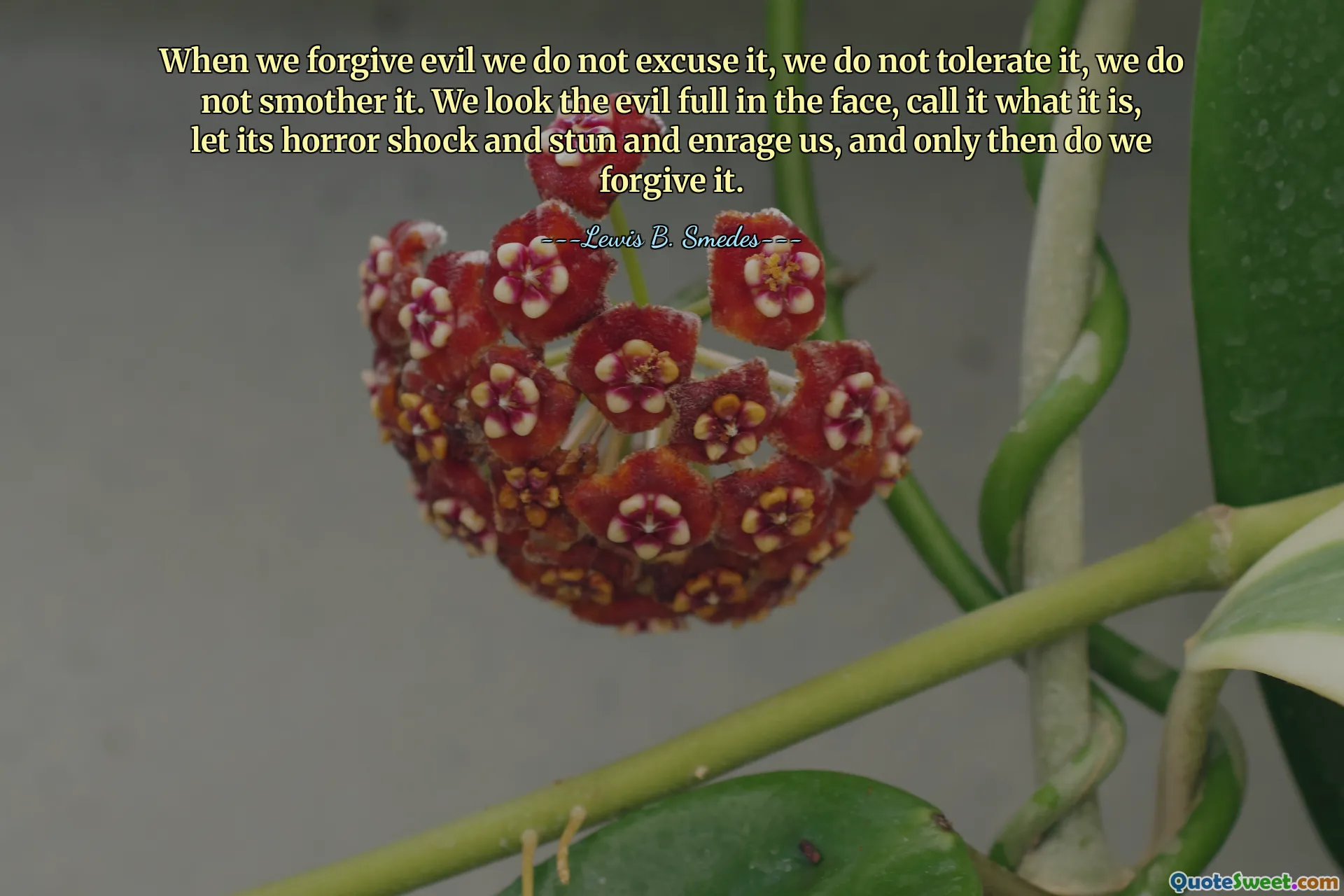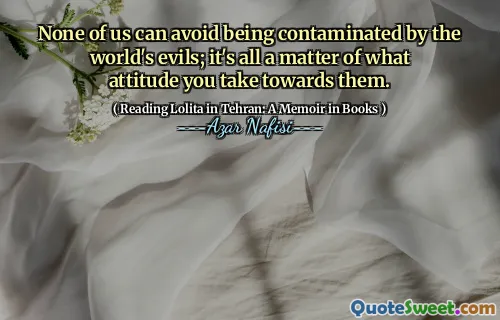
When we forgive evil we do not excuse it, we do not tolerate it, we do not smother it. We look the evil full in the face, call it what it is, let its horror shock and stun and enrage us, and only then do we forgive it.
This quote highlights the complex and profound process of true forgiveness. Forgiveness is often misunderstood as simply forgetting or dismissing the wrong done to us. However, the perspective presented here emphasizes that genuine forgiveness requires a deliberate confrontation with the reality of evil or harm, acknowledging its severity rather than minimizing or avoiding it. By insisting on facing the full brutality or ingratitude, we honor the pain inflicted and confront the truth of the situation. This conscious acknowledgment serves as a foundation for forgiveness, rooted in honesty and integrity. It recognizes that forgiveness does not mean excusing or tolerating harmful behavior; instead, it involves a moral maturity where one recognizes the damage, refuses to paper over it, and allows the emotional response of shock, indignation, and even rage to surface. Only after this authentic confrontation can forgiveness genuinely occur, freeing the forgiver from the destructive power of sustained resentment and bitterness.
This approach to forgiveness fosters emotional health and moral clarity. It prevents the dangerous temptation to deny the harm or to pretend it didn't matter, which could lead to suppressed feelings and potential further pain. It aligns with the view that true forgiveness is an act of strength, integrity, and compassion—an assertion that, despite recognizing evil's horror, one chooses to liberate oneself from its ongoing grip. Such a stance also underscores the importance of justice and moral clarity, acknowledging that forgiveness does not mean dismissing or tolerating wrongdoing but rather responding to it with honest acknowledgment and a conscious decision to move forward without bitterness. Overall, this quote offers a balanced and courageous perspective on forgiveness, emphasizing its necessity for moral and emotional healing while respecting the gravity of evil and the human response to it.







